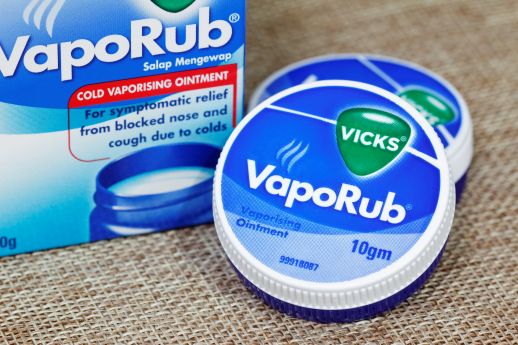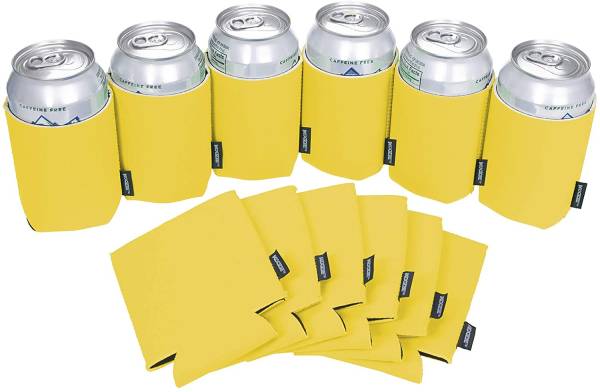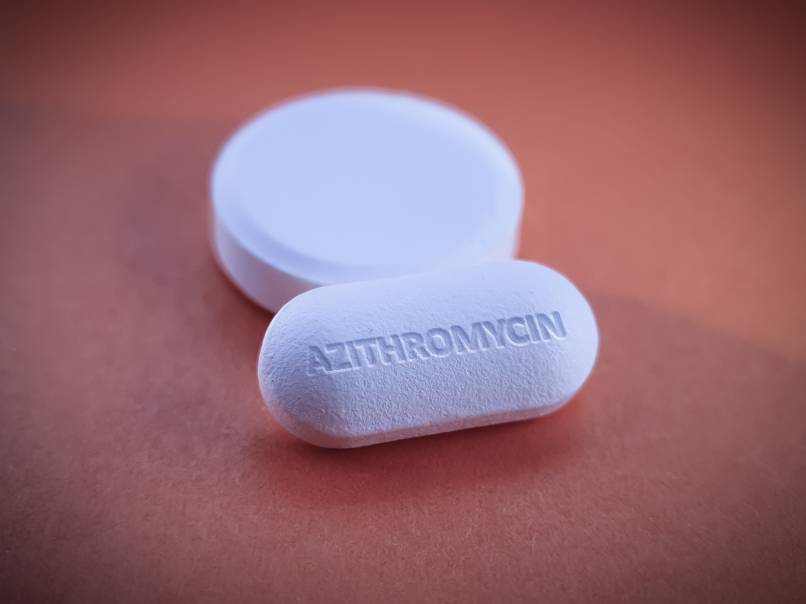Connect with a verified veterinarian in minutes. Licensed vets are available 24/7 to answer your questions. No need to worry about your furry family member.
Vicks Vapor Rub is an ointment that’s found in many medicine cabinets. It’s great for colds and flu, sinus congestion, sore muscles, and more. But what happens if your dog eats Vicks Vapor Rub? Can Vicks Vapor Rub make your dog sick?
What is Vicks Vapor Rub?
Vicks Vapor Rub is a human ointment made of camphor, eucalyptus oil, and menthol. It can be used by humans to relieve nasal & chest congestion caused by colds and flu, as well as ease the congestion caused by sinus infections. Vicks can also be used by humans to relieve minor aches and pains in muscles and joints.
Camphor poisoning is a common problem, especially during the winter months when pet parents and their families have colds, flu, and other respiratory illnesses. Camphor and the other ingredients in Vicks can be toxic to dogs (and other pets).
But what if your dog ingests Vicks Vapor Rub? Will Vicks make your dog sick?
Camphor, Eucalyptus, and Menthol Toxic to Dogs
The main ingredients in Vicks can be toxic to dogs:
Camphor is a white, crystalline substance that acts as a cough suppressant and decongestant. However, if inhaled or ingested in large amounts, it can cause vomiting, seizures, coma, and death. (Note, it can also be absorbed through the skin).
Eucalyptus oil is used to relieve respiratory symptoms, including coughing and congestion. However, the oil is toxic to dogs if ingested or applied to the skin. Symptoms of eucalyptus toxicity in dogs can include diarrhea, vomiting, difficulty breathing, and seizures.
Menthol is a substance found in mint plants used in cough drops and other cold remedies. Menthol has a cooling effect, and it helps open clogged airways. However, this substance is also toxic to dogs if inhaled or ingested (in large amounts). Symptoms of menthol toxicity in dogs include vomiting, diarrhea, tremors, difficulty breathing, coma, and death.
Vicks is sometimes recommended as a flea repellent for dogs. However, the ingredients in this ointment are toxic to dogs. Vicks should only be used under the recommendation of a veterinary and it’s necessary precisely follow their instructions on Vicks Vapor Rub’s use.
Camphor (and the other ingredients in Vicks) can be absorbed through the dog’s skin and can lead to poisoning, too. Your fur baby can also be poisoned if he licks the ointment off his fur or your skin.

Review symptoms, medications & behavior to keep your pets healthy with a Vet Online in just minutes.
Ask a Vet Live NowVicks Vapor Rub & Dogs
Vicks contains ingredients that are toxic to dogs, including camphor. If ingested, your dog could become very sick.
You may notice these symptoms if your dog has ingested Vicks Vapor Rub:
- Nausea
- Vomiting
- Diarrhea
- Burning throat and mouth
- Depression
- Irritation of the mucus membranes
If your dog has eaten only a small bit of Vicks, then the symptoms are likely to be mild. . However, if is recommended to phone your vet to discuss your pet’s individual case, regardless of how much Vicks Vapor Rub he has eaten.
Treatment of Vicks Vapor Rub Ingestion in Dogs
At the vet’s, they will perform a physical exam of your dog, which may include blood tests and other lab work. The vet will also look for signs of mouth and throat irritation.
If the vet determines your dog has eaten Vicks, then they may advise to treat your pet with IV fluids (a drip), activated charcoal, and more. Your fur baby will probably need an IV (cannula), which makes it easier to give him other medications as needed. If this is a severe case, the vet will want to keep your dog in the hospital for a few days to monitor his symptoms and recovery.
In most cases, dogs who eat a small amount of Vicks should be OK within a few hours. For a more severe case of toxicity, recovery can be longer. However, dogs who receive prompt medical care usually will go on to make a full recovery. Your veterinarian will be able to discuss your pet’s individual case and a suggested treatment and monitoring plan to give them the best chance of recovery.
Connect with a verified veterinarian in minutes. Licensed vets are available 24/7 to answer your questions. No need to worry about your furry family member.

Evie Moloney, RCVS
This article has been reviewed and approved by an independent Veterinarian: Evie is a vet surgeon who graduated from the University College Dublin, which is the only university offering the veterinary medicine degree in Ireland. She really enjoys surgery and has also worked as an emergency and critical care vet. She is passionate about sharing education about preventative health care for pets, especially the importance of regular dog and cat teeth brushing at home. She also enjoys helping owners find practical solutions for keeping pets as comfortable as possible while living with conditions such as arthritis. When not working, she enjoys hiking and swimming.
Review symptoms, medications & behavior to keep your pets healthy with a Vet Online in just minutes.
Ask a Vet Live Now






